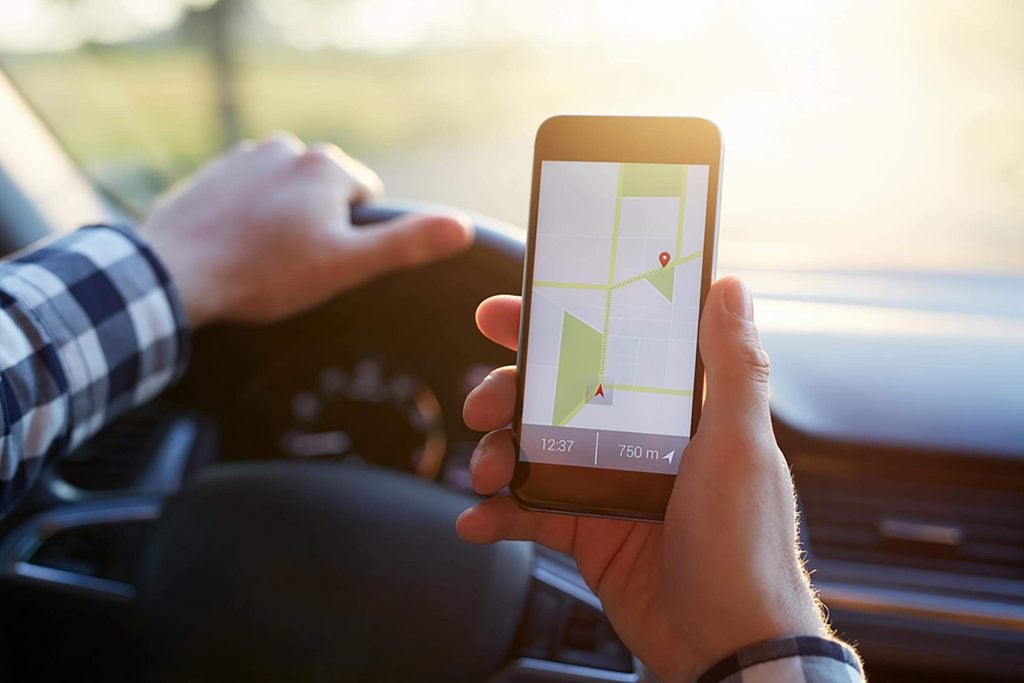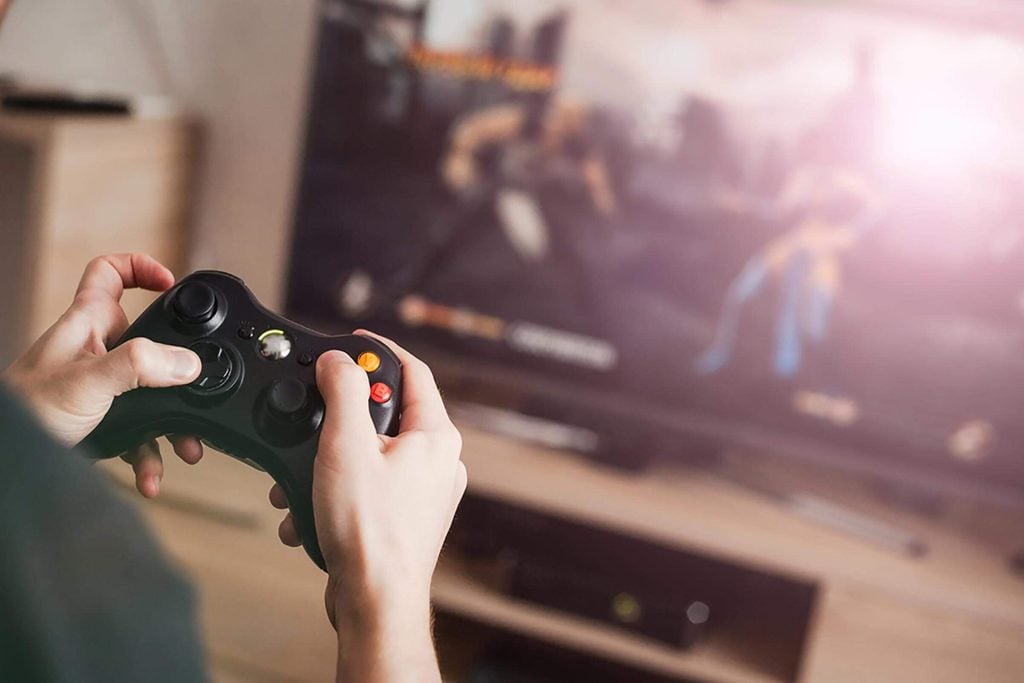
The reason you can’t recall
Plugging random stuff into Google can produce hilarious results. And what’s not to like about the convenience? Well, with pretty much all the information you’d ever need or want at your fingertips, the Internet is changing the way your brain works, according to some fascinating research from Columbia University professor Betsy Sparrow, PhD, published in Science journal. By acting as a personal memory bank, search engines are making you better at remembering how and where to find information, but worse at remembering the actual information itself.

Your driving is getting worse
Yes, there are the horrific-yet-hilarious stories about people who followed their GPS into getting lost in Iceland, the middle of a river, or wedged a giant truck into a picturesque English cottage. But mapping devices and apps make it easy for your brain to fog out, according to research published in 2012 in the Journal of Cognitive Neuroscience. The researchers found evidence that your brain has a limited capacity for processing too much information at one time, making it challenging to both pay attention to directions on your GPS screen and the actual road in front of you.
“Focusing on remembering the directions we’ve just seen on the screen means that we’re more likely to fail to observe other hazards around us on the road [like] an approaching motorbike or a pedestrian on a crossing, even though we may be ‘looking’ at where we’re going,” study author Nilli Lavie, PhD, professor at the University College London’s Institute of Cognitive Neuroscience, told Science Daily.

‘Halfalogues’ distract and irritate
Overhearing half a conversation—like someone on a cell phone—is far more distracting and annoying than listening to a dialogue between two people as anyone can attest and science proves, thanks to research from the University of San Diego. In the study, college students who were working on anagrams near a researcher who talked on her cell phone were much more likely to remember the conversation (and find it irritating) than students who did the puzzles near two people talking.
Blame your brain’s desire to fill in the blanks. “If you only hear one person speaking, you’re constantly trying to place that part of the conversation in context,” lead study author and psychology professor Veronica V. Galvan, PhD, told the New York Times. “That’s naturally going to draw your attention away from whatever else you’re trying to do.
And while you’re thinking about your cell phone, make sure you’re not falling foul of these etiquette rules too.

Your grammar and spelling is turrible
Let’s face it: Autocorrect is primarily a source of humor. Its fails have become such a ubiquitous part of our nomenclature that there’s even a whole site dedicated to tracking them. But in addition to embarrassing us, sloppy texting may also make us less able to catch spelling mistakes while we read other material.
That’s because the brain is adept at making sense of words as long as the first and last letters are the same, a skill that texting seems to enforce. When you get so used to making sense of your friends’ manic typos, you may fail to notice your own while proofreading an important e-mail or report for work. (Did you know about these expensive typos?)

You can’t remember what you read
Ever find yourself re-reading (and re-reading) the same page in your Kindle or your iPad news app? There’s a good reason for these memory lapses, suggests research. A study published on ResearchGate showed that those who read a short story on paper remembered significantly more detail than those who read it on a Kindle. Lead researcher Anne Mangen (University of Stavanger, Norway), believes that the brain may use physical cues, such as the position on the page or the location in a print book, to help in the memory process.
“When you read on paper you can sense with your fingers a pile of pages on the left growing, and shrinking on the right,” Mangen told The Guardian. “You have the tactile sense of progress, in addition to the visual … [The differences for Kindle readers] might have something to do with the fact that the fixity of a text on paper, and this very gradual unfolding of paper as you progress through a story, is some kind of sensory offload, supporting the visual sense of progress when you’re reading.”

Just looking at your cell phone wrecks your brain
You’re getting the idea that unplugging from technology occasionally could do your brain a favor. So switching off your cell phone should do the trick, right? Nope, according to scientists at the University of Texas, Austin. In a study published in the Journal of the Association for Consumer Research, researchers asked students to take tests that demanded close concentration, which were designed to measure the brain’s ability to hold and process data. The volunteers were asked to switch their cell phones to silent mode, then leave them on the desk, in their pocket or bag, or in another room. Test takers fared far better when their phone was in another room than they did when it was present. McCombs Assistant Professor Adrian Ward told Science Daily that this could be because it takes effort to ignore our phones.
“Your conscious mind isn’t thinking about your smartphone,” he said, “But that process—the process of requiring yourself to not think about something—uses up some of your limited cognitive resources. It’s a brain drain.”

Video games are replacing reading
Once upon a time, kids would entertain themselves by getting lost in a book. But now, you’re just as likely to find them playing the latest video game. Of course, video games aren’t all bad: They can help kids develop a whole host of useful skills, such as concentration, coordination, problem-solving skills, and maybe even co-operative skills if they’re playing online with their buddies. And a little rest and relaxation at the end of a hard days’ learning isn’t necessarily a bad thing.
However, a study published in Educational Psychology found that gaming skills have very little effect on academic performance, whereas reading activities ‘have potentially important associations with cognition and especially school tests’.
The team concluded that “video games are primarily recreational activities and the cognitive stimulation they produce is very different from the one involved in specialized academic subjects.”

We’re suckers for fake news
Once upon a time, ridiculous headlines were restricted to supermarket tabloids—remember Batboy, or the WW2 bomber found on the moon? You could read for fun, but you knew it was the journalistic equivalent of professional wrestling. Nowadays the ridiculous tales turn up in places where they’re less obviously fake—like social media feeds, which many people rely upon for their news.
A recent Common Sense Media report, “News and America’s Kids: How Young People Perceive and Are Impacted by the News,” found that less than 50 percent of teens felt they had the skills to distinguish between real and fake news. And around a third confessed to sharing a news story they later found to be fake.
Trust was also an issue. Although over 60 percent of kids said they’d trust news from a relative the most, nearly a third of them preferred to get their news from social media. This problem can lead to people mistrusting news reports, even when they’re well verified.

We’re raising kids who can’t read emotions
Being constantly plugged into technology can lead to real problems for younger kids. A study by scientists from UCLA (published in Computers in Human Behavior), found that preteens who spent five days at a nature camp, with no access to technology, improved their ability to read non-verbal emotion cues significantly. They were better able to react to emotional cues both in real life and in videotaped scenes. Those who were allowed access to technology showed no such improvement.
“Implications are that the short-term effects of increased opportunities for social interaction, combined with time away from screen-based media and digital communication tools, improves a preteen’s understanding of nonverbal emotional cues,” the research team concluded.

Our infants have trouble talking
Yes, adults may be suffering from tech’s insidious effects on intellect, but what will the damage be to future generations? In research recently presented at the 2017 Pediatric Academic Societies Meeting, scientists found a link between the amount of time toddlers spent using devices like an iPad or cell phone and delays in speech development. For every 30 minutes of device time, the team found that 3-year-old-and-younger infants experienced almost a 50 percent increased risk of delay in expressive speech. “This is the first study to report an association between handheld screen time and increased risk of expressive language delay,” lead researcher Catherine Birken, MD, told Science Daily.
So are cell phones dangerous for babies? While more research is needed into exactly which activities have the most impact, Dr. Birken endorses the advice from the American Academy of Pediatrics that babies under 18 months should not use devices at all, and after that, their use should be carefully monitored.
